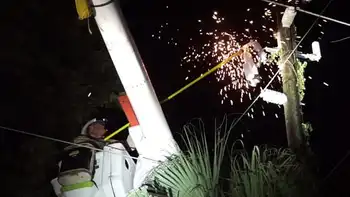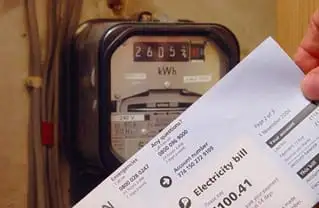Power line worries residents
By Calgary Herald
Protective Relay Training - Basic
Our customized live online or in‑person group training can be delivered to your staff at your location.

- Live Online
- 12 hours Instructor-led
- Group Training Available
But now Calgary energy company AltaLink Management Ltd. wants to build a controversial 500-kilovolt transmission line through his property east of Airdrie.
The cattle and grain farmer questions how the power lines will affect his ranching, his property values and his health.
The plan has been in the works for almost three years, yet he still doesn't know.
"We haven't gotten any information at all," Lunde said.
About 100 farmers and landowners gathered in Crossfield for a public meeting on the proposed transmission line linking Edmonton power plants to Calgary consumers.
The gathering was organized by Joe Anglin, a Rimbey area landowner spearheading the Lavesta Area Group, which is lobbying against the proposal.
Anglin describes the Alberta Energy and Utilities Board approvals process as "clearly confusing."
"It's a little bit like Alice in Wonderland when you get involved in these decisions," said Anglin, who has helped launch an appeal of the route the transmission lines would take.
There are no whispers or shuffling feet from a crowd anxious for answers. For two hours, the only sounds heard above Anglin's voice in the packed auditorium is the hum of a nearby refrigerator and the intermittent coo of a lone baby.
Much of the discussion walks listeners through the regulatory process to approve the 500-kilovolt transmission line, explaining acronyms such as the EUB and describing the major players involved.
That's exactly what Darcy Kirby came to the meeting for.
His extended family owns a farm near Rockyford which is involved in a separate EUB proposal. He wanted to understand more about how the board works. "There's no way you can possibly swim through this on your own," Kirby said after the meeting.
"The EUB is supposedly acting on our collective behalf. I think if Albertans actually understood what was going on, I can't believe they would approve," Kirby said.
Altalink president and CEO Scott Thon said in a recent article on the Herald's opinion pages that the current power grid is inefficient. Demand for energy in southern Alberta is growing, and creating the $500-million power link between Edmonton and Calgary will prevent blackouts during the coldest days of winter, he says.
Anglin counters that new technologies could be used to improve efficiency, power lines could be buried along the provincial highway and power plants could be built closer to Calgary, as some industry experts have suggested.
He said landowners need to band together to oppose the plan, which will be before another EUB hearing in February.
Sam Sandau says it would be a full-time job just trying to understand the plans for water lines and transmission lines proposed for his property east of Airdrie. "If we would have started earlier in the whole game it would have helped matters. We're getting late in the situation now and it seems like all the answers are made already," Sandau said.
"We shouldn't give up hope, but the chances are getting slimmer and slimmer."











